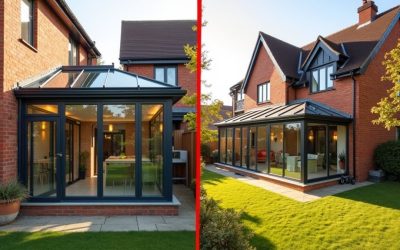When making your first steps onto the property ladder, two terms you’ll encounter repeatedly are ‘freehold’ and ‘leasehold’. Most (but not all) houses are freehold properties, while most flats are leaseholds – but what do these terms actually mean?
The main difference between freehold and leasehold is the ownership rights and duration. When you own a property on a freehold basis, you have full ownership rights to both the property and the land it is built on. You have indefinite ownership and can use and modify the property as you wish. When you own a property on a leasehold basis, you have the right to use and occupy the property for a specific period of time, as outlined in the lease agreement. The land on which the property is built remains owned by the freeholder.
Leasehold properties often involve paying annual ground rent and may have various restrictions or obligations outlined in the lease agreement. The leasehold ownership is for a fixed term, after which the ownership reverts back to the freeholder unless the lease is extended or renewed.
The distinction between these two terms can affect how you make payments, how the land is maintained – and in some cases, even the future value of the property.
Although estate agents can sometimes downplay the importance of the two types of property, the differences could easily become dealbreakers in some situations. It is therefore important to understand both terms and under which circumstances they become primary considerations.
What is a freehold property?
‘Freehold’ means that you will be buying the property (and the land on which it stands) outright and indefinitely.
The Land Registry will have your name down as the freeholder and the owner of the ‘title absolute’, which is the best kind of title to have as it essentially means that your ownership can’t be challenged under any circumstances.
In a nutshell, the property is 100% yours, and you can do whatever you like with it (planning policy permitting). It does, however, mean that any and all maintenance work, building insurance and so on are entirely your own responsibility.
Advantages of Freehold Ownership
Freehold ownership offers numerous benefits, such as the freedom from lease concerns and the ability to avoid dealing with a landlord.
Having full ownership of a property and the land it sits on comes with several advantages:
- Absolute Ownership: Freehold ownership provides the highest form of property ownership, giving the owner complete control over the property and the right to use, occupy, and dispose of it as they see fit. There are no restrictions or limitations imposed by a landlord or lease agreement.
- Long-term Investment: Freehold ownership offers the potential for long-term capital appreciation. As the owner, you have the freedom to make improvements, renovations, or additions to the property, which can increase its value over time.
- Freedom and Control: Freehold ownership gives you the freedom to make decisions regarding the property without seeking approval from a landlord or property management company. You can customize the property to suit your needs and preferences, whether it’s for personal use or as an investment.
- Stability and Security: Owning a freehold property provides a sense of stability and security. Unlike leasehold or rental properties, where tenancy agreements can be terminated or rent increased, freehold ownership ensures you have a permanent stake in the property.
- No Ground Rent or Service Charges: With freehold ownership, there are no ground rent or service charges to pay. This can result in significant cost savings compared to leasehold properties, where these fees are often required to be paid to the landlord or management company.
- Inheritance and Legacy: Freehold ownership allows you to pass on the property to future generations as part of your estate planning. This can provide a valuable asset for your family and serve as a long-lasting legacy.
- Flexibility: Freehold ownership provides flexibility in terms of usage. You have the freedom to use the property for residential or commercial purposes, or even a combination of both, depending on local zoning and regulations.
- Potential Income Generation: Freehold properties can be rented out, providing a potential source of rental income. This can be particularly advantageous in high-demand rental markets or for those looking to generate passive income.
Overall, freehold ownership offers numerous advantages, providing individuals with greater control, stability, and potential financial benefits compared to other forms of property ownership.
Buying the freehold
There are a number of reasons why a leaseholder might consider trying to buy the freehold for their property.
By paying for a ninety-year lease extension, they can have the opportunity to extend the lease without any additional cost, except for legal fees.
You can check your premiums using a lease extension calculator that would calculate using statutory methods with reasonable accuracy.
Owning the freehold also allows the buyer to have some control over service charges – they aren’t forced to pay the bills for the providers chosen by somebody else – and also complete freedom from ground rent obligations.
Additionally, it can add value to their home, as freehold properties are generally more desirable to buyers than leaseholds.
However, buying the freehold isn’t cheap, and it can be quite a drawn-out process – often taking a year or more. The procedure is also different depending on whether you have a leasehold house or a flat (in which case you would be buying a share of the freehold).
In a building comprised of flats it’s necessary for tenants to team up and buy the freehold between them (and by law, at least half of the building’s leaseholders need to be involved). Thus, each tenant then usually owns a lease of the freehold now owned by the legal entity they formed together.
What is a leasehold property?
By contrast, a ‘leasehold’ property is – as the name suggests – simply leased from the freeholder. This is commonly used for blocks of flats, in which an individual may buy the lease for a single flat but not the entire building or the land.
A property lease might last for decades or centuries, with some common lease lengths being 90 years, 120 years or even 999 years. At the end of the lease, however, ownership of the property ultimately reverts back to the freeholder.
Leases on flats can often be extended, and tenants can earn the right to do this once they have owned the property for at least two years (and the original duration of the lease was at least 21 years).
When buying a leasehold property, however, it can be very important to know how many years are left on the lease as this may affect your ability to remortgage or sell it.
It’s common for leasehold tenants to be charged a standard ‘ground rent’ on an annual basis and also pay a recurring maintenance fee or service charge.
At the same time, the freeholder is usually responsible for any maintenance needed on the exterior of the property or the land itself (with only the interior of the property being the tenant’s responsibility).
In some cases, there may be restrictions on what the tenant is allowed to do at the property (such as keeping pets or subletting). Importantly, if a leasehold tenant should breach the terms of their lease, the lease itself may become forfeit (although in practice this happens quite rarely).
While it is mostly flats that are leasehold properties, recent years have seen an increase in the number of newly built houses that are sold on a leasehold basis.
As a note of caution, properties with extremely long leases (such as 999 years) are sometimes marketed by estate agents as ‘virtual freeholds’ – the implication being that the buyer doesn’t need to worry about the lease length and can think about the purchase the way they would a freehold. However, this may in some cases be a setup for small-print sleight of hand whereby the buyer ends up on the hook for ever-increasing and extortionate annual ground rent charges.
Extending a leasehold It’s usually possible to seek an extension of another ninety years on top of the remaining term of your flat lease. If you get the extension, you can negotiate new terms and you also won’t be expected to pay extra ground rent (and if your request is denied, you can take the freeholder to court).
You will have to pay a fee (generally in the thousands) to get an extension on your lease, and the amount will typically depend on the length. In many cases this is very much worth doing, as leaseholds effectively lose value as they continue to expire – and a lease with only a few years left on it may become practically unsellable.
In order to extend the lease on your flat, you will also need to pay for a survey to have the property valued so that the right price can be put on the extension. If the extension happens to be worth more than £125,000, you will also need to pay stamp duty.
Final Thoughts
Overall, the differences between freehold and leasehold properties are quite straightforward. Leasehold properties may seem to be off-putting to some, but they can be a good and sensible option in many circumstances.
With a clear understanding of the pros and cons of each type of property, a prospective first-time buyer can make an informed decision when searching for their dream new home – entering into an arrangement that works well for everybody involved.
This post was contributed by Girlings Solicitors – expert property solicitors in Ashford , Canterbury and Herne Bay. With nearly 140 years of experience providing personal, business and not-for-profit legal services, Girlings is one of the largest and oldest law firms in Kent.


